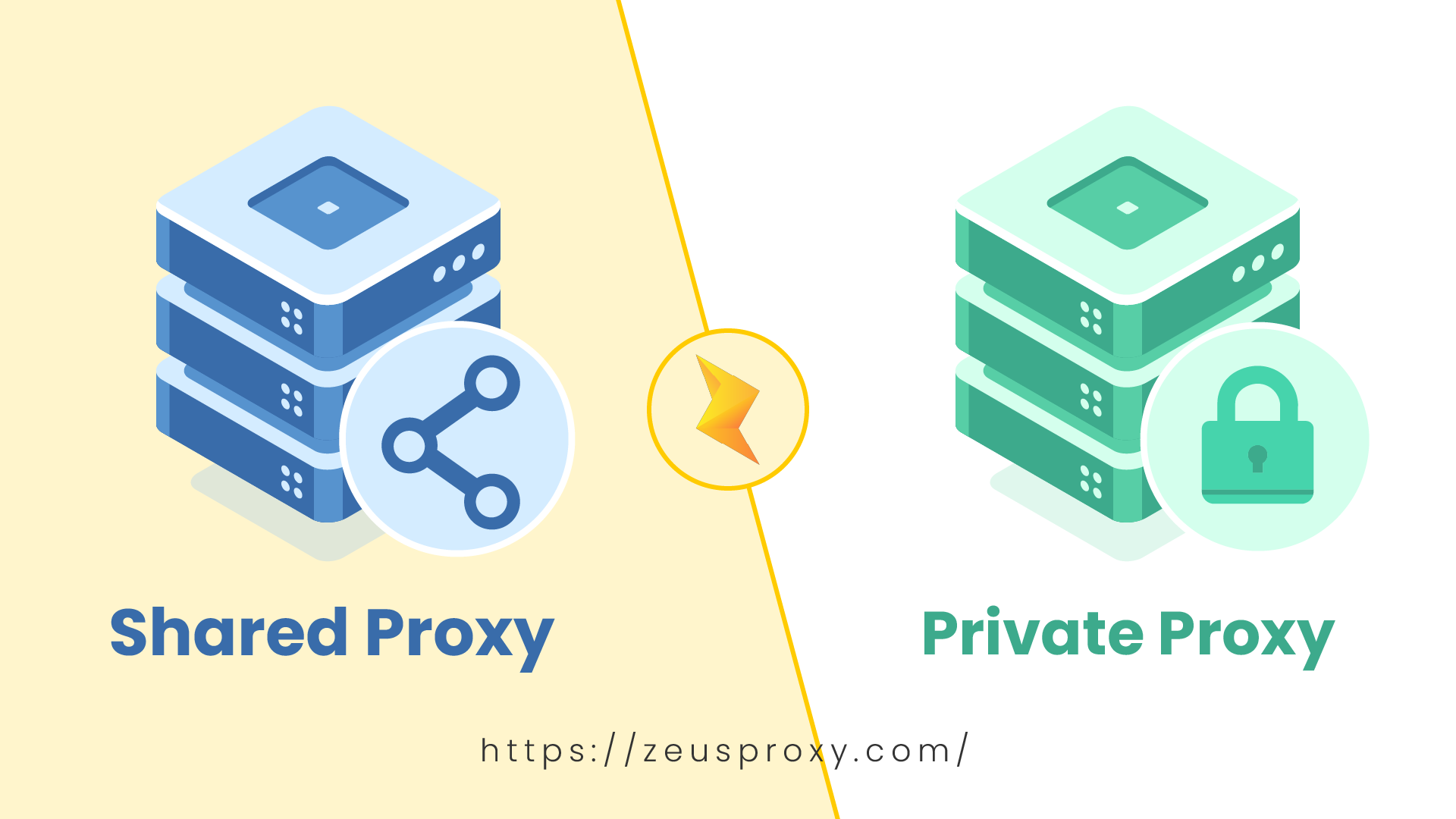Do you ever wonder why some proxies are super pricey, while others are a bargain? Well, besides the proxy quality, it all comes down to whether the proxy is shared or private.
In this article, we'll break down the pros and cons of each type to help you figure out which one is right for you.
|
Shared proxies are used by multiple people at the same time. You can find them in datacenter and residential flavors, but residential shared proxies are the most common.
There are two kinds of shared proxies:
- Public proxies (Open proxies): These are free proxies you can find online. While they save you money, it's hard to tell who's providing them, and you won't get any support if things go wrong. These can also be risky, leading to data theft.
- Shared proxies: This is the regular shared proxy that you have to pay for, but they're still affordable. You know who's providing the service, which offers some peace of mind and support. The number of people sharing a server proxy can vary, and usually, the more users there are, the cheaper it is. However, it's up to the provider to control this number, making it hard for you to know how many folks are sharing the server.
|
- Affordable: Shared proxies are cheaper, and public ones are totally free.
|
- Less security: Since multiple people use shared proxies, you have less control over what others do with the IP, which increases the risk of data theft.
- Getting blacklisted: Shared IPs are more likely to end up on website blacklists, especially if the provider doesn't reset them regularly.
- Slower speed: Sharing bandwidth with others can lead to slower speeds and shaky connections.
|
Private Proxies (Dedicated Proxies)
|
Private proxies are just for you, and they come in two types:
- Datacenter Proxy
- Residential Static Proxy (ISP)
Residential rotating proxies are shared and don't have a private option. You can check out our previous article on rotating and static proxies for more details.
|
- Security: Private proxies are exclusively yours, reducing the risk of data theft or being blocked because of others' actions.
- Fast and stable: Since the connection is all yours, there's no sharing of bandwidth, ensuring speedy and stable performance.
|
- Higher cost: Private proxies are usually way more expensive than shared proxies
|
So, which one should you pick, shared proxies or private proxies?
|
By now, you probably have an idea of which type suits you. If you go for private proxies, you'll pay a bit more for extra security. But if you opt for shared proxies, you can save some cash, but you have to deal with potential downsides like blacklisting, account issues, and data security concerns. In many cases, those problems can end up being more costly than investing in private proxies right from the start.
Regardless of your choice, be sure to pick a reliable provider, check the freshness of the IPs, and run tests to make sure they meet your specific needs. Zeus Proxy is a reliable residential proxy service that you can use to confidently run online tasks.
|
|



